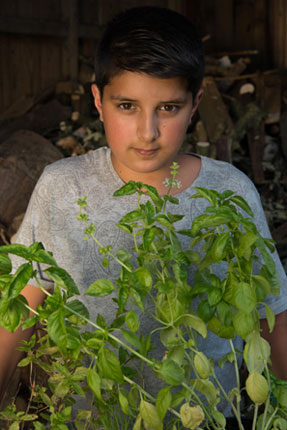The benefits
What social scientists and scientists tell us
Research has shown that gardening at home brings emotional, physical and social benefits, be it as an individual, couple, family or neighbourhood community. Gardening can lower stress levels [1], and increases the rate of recovery from stress [2], exhaustion and burn-out [3]. Recovery returns individuals to an equivalent quality of life than before burn-out [4].
By incorporating nature in daily routines, it increases job satisfaction [5], and lowers rates of minor illnesses such as headaches and sickness [6], and increases life satisfaction more generally [7].
Gardening supports flow states where detaching from demanding environments is soothing [12] and restful [13]. It makes problems more solvable, less severe and of shorter duration and decreases procrastination over life issues [14]. It allows space for emerging buried thoughts and feelings to be processed [15] and increases a sense of hope [16].
Gardeners have more positive self-identity and optimism than non-gardeners [17] and report increased levels of satisfaction, pride and creativity associated with developing gardens [18]. Gardening households consume more fruit and vegetables daily than non-gardening households [19], with increased nutrient density in home-grown produce over transported produce [20].
Working together promotes well-being.. Couples report an improved relationship, better communication and increased levels of patience following gardening together [21].
Children play more creatively [22], are more inquisitive in the garden [23], whilst gardening reinforces positive relationships with parents [24] and the environment [25]. Children are more likely to eat own-grown fruit and vegetables [26] and show higher levels of knowledge about nutrition [27]; they are better at communication and decision-making [28] and have higher self-esteem than non-gardening children [29].
Neighbourhoods report extended social networks [30], better local motivation [31] and cohesion [32], social integration and pride following community gardening [33]. Living near plants predicts lower life stress, increased familiarity with neighbourhoods, an increased sense of local community and more frequent use of communal spaces [34], whilst improved social ties predicts a greater sense of safety [35]. Ease of access to nature is the strongest factor of neighbourhood satisfaction [36].

